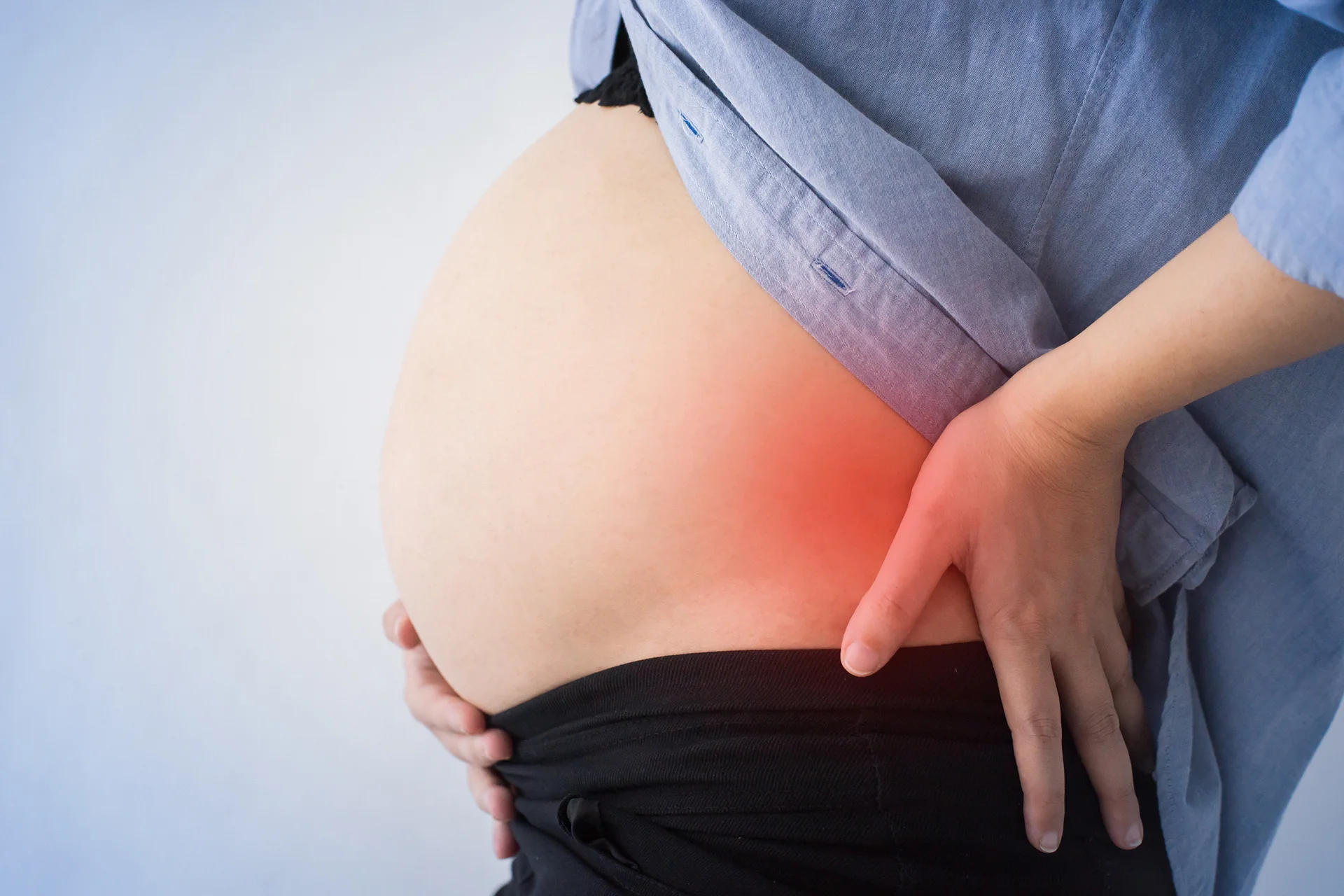The joy of bringing a new life into the world is often tempered by the physical pains of pregnancy and childbirth. For many new mothers, persistent sciatic nerve pain is one of the unpleasant surprises that can linger for weeks or even months after delivery.
If you’re suffering from shooting, burning or tingling sensations running down your leg after having a baby, you’re not alone. Here we’ll explore the common causes, symptoms, and both medical and natural treatments available to help relieve the agony of sciatica after pregnancy.
What is Sciatica?
Sciatica refers to pain, weakness or numbness caused by compression or irritation of the sciatic nerve, which runs from the lower back down through the hips and buttocks and into each leg. The sciatic nerve is the longest and widest single nerve in the human body.
Pregnancy often puts increased pressure on this nerve due to the baby growing and shifting inside the womb. Postpartum sciatica is usually caused by changes to the pelvis and spine during pregnancy and childbirth. According to a study from PubMed Central, about 50% of women will suffer from back pains at some point during their pregnancies or during the postpartum period.
What Causes Sciatica After Childbirth?
There are several ways that pregnancy and delivery can contribute to compression or irritation of the sciatic nerve, leading to postpartum sciatica:
| Cause | Explanation |
| Pressure from the Baby | The weight of the growing baby and expanded uterus puts increased pressure on the sciatic nerve. The baby shifting positions, especially pressing against the nerve, can worsen symptoms. |
| Changes to Pelvic Bones and Muscles | To accommodate childbirth, the pelvic bones loosen and pelvic floor muscles stretch. This added mobility can allow more compression or pinching of the nerve. |
| Weak Core Muscles | Abdominal muscles like the transversus abdominis help support the lower back. Weakened core muscles from pregnancy can cause misalignment and instability in the spine, stressing the sciatic nerve. |
| Spinal Misalignment | The extra weight and off-center gravity of pregnancy can throw the spine out of proper alignment. Muscle tension from delivery positions can also contribute to spinal issues. This places more pressure on delicate nerves. |
| Scar Tissue | In a C-section delivery, scar tissue formation during the incision healing process could potentially put pressure on the sciatic nerve. |
| Piriformis Syndrome | The piriformis muscle located behind the hip socket can sometimes spasm and pinch the sciatic nerve, causing pronounced pain. |
What are the Symptoms of Postpartum Sciatica?

Postpartum sciatica can lead to a variety of symptoms that women may experience in the lower back, hips, legs and feet. These may include:
- Lower back, hip and leg pain on one or both sides
- Pain or numbness radiating down the back of the leg and into the foot
- Tingling, pins and needles sensation or burning in the leg, foot or buttocks
- Aggravated pain from sitting, standing, sneezing, coughing or straining
- Muscle weakness or difficulty moving the leg or foot
See your doctor if pain persists beyond a week or two or you experience loss of bladder/bowel control which could indicate a serious issue like spinal damage.
How Long Does Sciatica Last After Pregnancy?
For most women, symptoms of sciatic nerve pain resolve within the first few weeks after delivery as the body recovers. A prospective study shows that mothers experience back pain at the time of delivery and 6 months postpartum, by 59.1% and 43.2%, respectively. Persistent pain beyond this should be evaluated by your OB-GYN or primary care physician.
Rarely, an undiagnosed back injury or pelvic floor disorder could be present, causing chronic nerve compression. Left untreated, permanent nerve damage is possible over time. Don’t hesitate to seek medical advice if your sciatica flares up again months or years later.
Medical Treatments for Postpartum Sciatic Nerve Pain
If your sciatica persists more than a week or two after delivery, your doctor may suggest one or more of the following medical treatment options:
Medications
- Over-the-counter anti-inflammatories like ibuprofen or naproxen to reduce swelling around the nerve.
- Muscle relaxers like cyclobenzaprine to relieve muscle spasms irritating the nerve.
- Prescription pain medications or antidepressants in severe cases unresponsive to other therapies.
Nerve Block Injections
A steroid medication and numbing agent injected directly around the sciatic nerve to reduce inflammation and pain signals to the brain. Usually a temporary treatment option.
Surgery
Rarely needed except in cases of substantial nerve damage or compression. Discectomy or microdiscectomy procedures remove bone or disc material pressing on the nerve.
Talk to your OB-GYN or primary care provider about the risks and benefits of any medical sciatica treatments. Be sure to disclose any medications or supplements you may be taking.
Alternative Treatments for Sciatic Nerve Pain Relief
For mild to moderate postpartum sciatic discomfort, many mothers find success with more conservative natural therapies:
| Treatment | Description |
| Chiropractic Care | Gentle spinal manipulation and alignment helps take pressure off pinched nerves. |
| Acupuncture | Fine needles placed in specific points along the sciatic nerve pathway help block pain signals. |
| Massage Therapy | Relieves muscle tension in the lower back, hips and thighs pressing on the nerve. |
| Heat & Ice | Alternating warm packs and cold compresses helps decrease inflammation and spasms around the nerve. |
| Exercise | Gentle stretching, prenatal yoga, and walking help strengthen muscles supporting the spine and improve flexibility, taking pressure off the nerve. |
| Avoid Activities Irritating the Nerve | Limit sitting and standing for extended periods and abstain from bending, lifting, or high-impact exercise. |
| Recovery Aids | Devices like maternity belts, braces, or shoe inserts provide extra support and take pressure off the spine and pelvis. |
Getting Relief from Nerve Pain After Delivery
In the first days after giving birth, the best prescription is often rest. Take advantage of any help around the house and avoid activities that aggravate your sciatica. The nerve and spine are often still recovering from the stresses of pregnancy and delivery.
Try a few sessions with a physical therapist who can recommend specific stretches and exercises tailored to treat your postpartum sciatica. They may also utilize techniques like ultrasound and electrical stimulation to help calm nerve pain. Massage therapy can provide similar benefits without medications.
For many new mothers, the neural discomfort is temporary and will fade over the first month or two after birth. But never hesitate to check with your healthcare provider if significant pain lasts beyond six weeks postpartum or you experience any numbness, tingling, or loss of control in your legs. Prolonged compression can sometimes damage the sciatic nerve.
The Takeaway

Coping with sciatica and lower back pain after pregnancy is frustrating but very common. Try the natural therapies mentioned here along with over-the-counter anti-inflammatories if needed to manage discomfort in those first weeks after delivery. But see your doctor promptly if symptoms persist or worsen. Early treatment is key to faster healing of postpartum sciatica.
At Kaly, we offer convenient virtual consultations with primary care physicians, OBGYNs, chiropractors, physical therapists, and more. Our experienced providers can assess your condition, explain treatment options, and refer you to the appropriate specialists for optimal recovery. We’ll even handle scheduling follow-up visits and any tests or imaging you may need.
Schedule an appointment online today and take the first step toward relief from post-pregnancy sciatica problems. We’re committed to getting new moms the support and care they need while navigating the joys and challenges of life with a new baby. Sign up for Kaly now.
